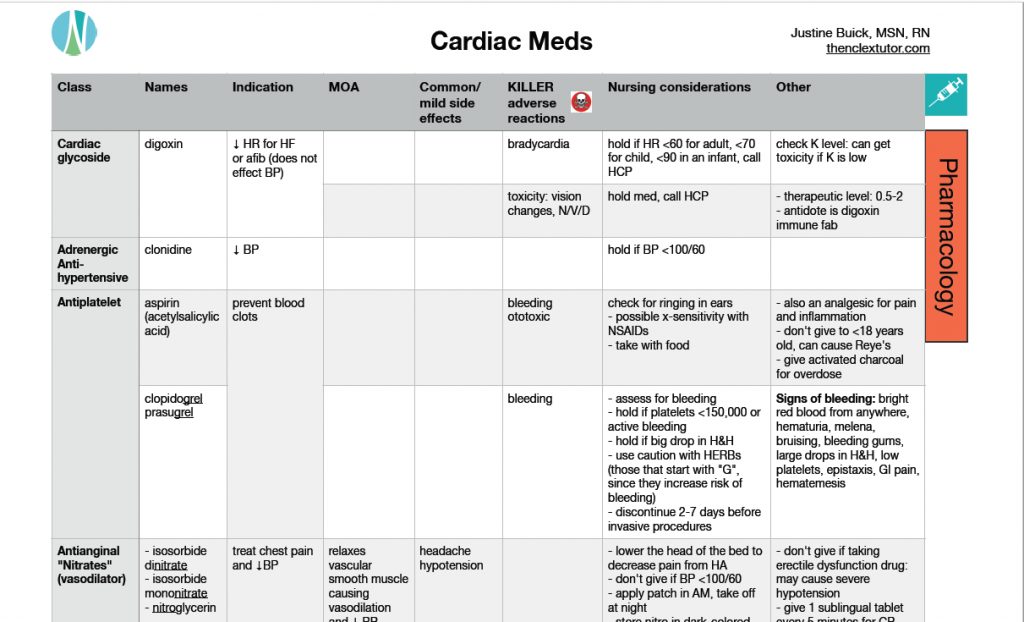Here are some strategies on how to eliminate answers when doing NCLEX Nursing Pharmacology questions, so that you can get more questions correct.

#1: Know what the question is asking: the Problem
A lot of students read the question super fast and don’t really try to figure out exactly what the question is asking. Every question is a problem and you want to figure out what the problem (or situation) is. So slow down and read the question carefully so you know what it is asking.
#2: Is the question asking about common/mild side effects or KILLER adverse reactions?
If the questions says:
“What would cause immediate concern when taking this medication?” – Then you know that the question is asking about a KILLER adverse reaction. Or something really bad like nephrotoxicity, or low WBCs. The patient can go into kidney failure or get an infection when taking that med and that would be BAD/KILLER! You would have to hold the med and contact the doctor because the patient can’t take that med any longer.
If the question says:
“What would the nurse expect when taking this medication?” Then you know the question is asking about a common or mild side effect like nausea or dry mouth. The patient will be just fine if they feel sick to their stomach or mouth gets a little dry. I would just tell the patient to eat some crackers and drink some water. The doctor typically doesn’t care too much about these mild side effects.
#3: Further teaching are the false answers
When doing a question that asks about “further teaching” or “further instruction”, then look for the answers that are FALSE. So basically, you are looking for what the patient is saying that is wrong or FALSE. The things that are true will not need further teaching. Does that sound confusing? Watch the video and you will see what I mean with an example.
#4: Know what the med is for
Seems obvious right? But it’s not always obvious. In the past, I have had students tell me that instructors have told them “it’s not about the content, it’s about critical thinking”. This is the dumbest statement. Of course it’s about the content! You have to know stuff to take care of patients and to answer test questions. You have to know content! So as you do questions, always try to state what the med is for. You will definitely get more answers correct.
#5: Pay attention to timeframes
Timeframes are things like:
- every 2 hours
- once per shift
- annually
- pre-operatively
- post-operatively
If you see something like the above in a question, pay attention to it! Timeframes get changed all the time to make the question wrong. You’ll see as I do the question in the video about digoxin how I almost get tricked by the timeframe.
Making Flashcards for Studying
I think repetition for studying meds is so important! Meds feel like a foreign language because you can hardly say the names. Because of that, you will have to practice saying the important info for medications.
At the very least, try to say what the med is for! Include the classification too, since the classification can tell you what the med is for. For example, lorazepam is a benzodiazepine/anti-anxiety. Here is a list of meds to know.
Then once you know what the the med is for you can start to memorize:
- mechanism of action (not always super neccessary)
- common/mild side effects
- killer/adverse reactions
- nursing consideration that go along with the side effects and adverse reactions
- “other stuff”
If you’re not sure what you need to know about meds, then check out my NCLEX Nuggets book I wrote. Students love it for it’s simplicity and easy to read layout.

Studying meds doesn’t have to be difficult! It does take time, so be patient with yourself. A little bit of studying every day will make you a pro in a few months!